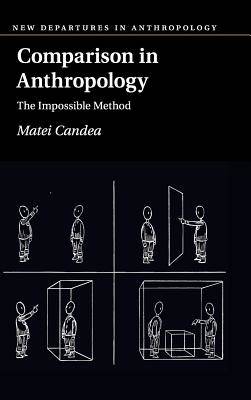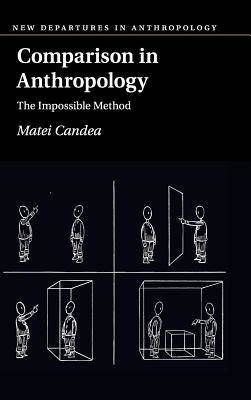
Bedankt voor het vertrouwen het afgelopen jaar! Om jou te bedanken bieden we GRATIS verzending (in België) aan op alles gedurende de hele maand januari.
- Afhalen na 1 uur in een winkel met voorraad
- In januari gratis thuislevering in België
- Ruim aanbod met 7 miljoen producten
Bedankt voor het vertrouwen het afgelopen jaar! Om jou te bedanken bieden we GRATIS verzending (in België) aan op alles gedurende de hele maand januari.
- Afhalen na 1 uur in een winkel met voorraad
- In januari gratis thuislevering in België
- Ruim aanbod met 7 miljoen producten
Zoeken
Omschrijving
Why and how do social and cultural anthropologists make comparisons? What problems do they encounter in doing so, and how might these be resolved? What, if anything, makes one comparison better than another? This book answers these questions by exploring the many ways in which, from the nineteenth century to the present day, comparative methods have been conceptualised and re-invented, praised and rejected, multiplied and unified. Anthropologists today use comparisons to describe and to explain, to generalise and to challenge generalisations, to critique and to create new concepts. In this multiplicity of often contradictory aims lie both the key challenge of anthropological comparison, and also its key strength. Matei Candea maps a path through that entangled conversation, providing a ground-up re-assessment of the key conceptual issues at the heart of any form of anthropological comparison, whilst creating a bold charter for reconsidering the value of comparison in anthropology and beyond.
Specificaties
Betrokkenen
- Auteur(s):
- Uitgeverij:
Inhoud
- Aantal bladzijden:
- 404
- Taal:
- Engels
- Reeks:
Eigenschappen
- Productcode (EAN):
- 9781108474603
- Verschijningsdatum:
- 15/11/2018
- Uitvoering:
- Hardcover
- Formaat:
- Genaaid
- Afmetingen:
- 188 mm x 234 mm
- Gewicht:
- 680 g

Alleen bij Standaard Boekhandel
+ 305 punten op je klantenkaart van Standaard Boekhandel
Beoordelingen
We publiceren alleen reviews die voldoen aan de voorwaarden voor reviews. Bekijk onze voorwaarden voor reviews.









